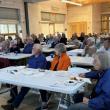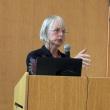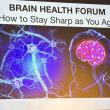Be pro-active about your brain health
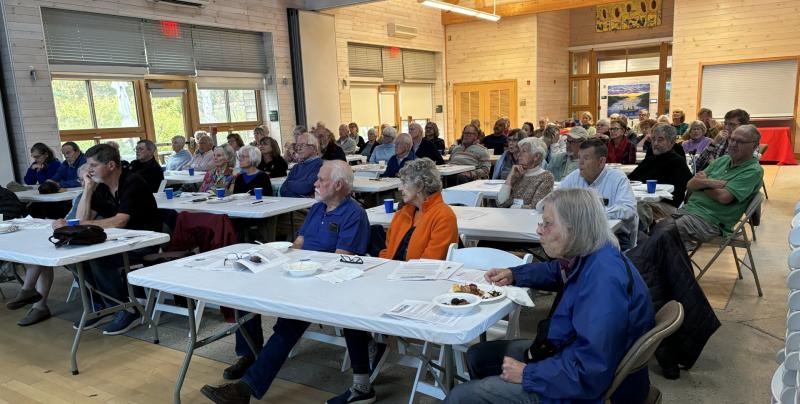 Boothbay Region Health Center's brain health presentation drew over 60 people to Bosarge Education Center at CMBG. LISA KRISTOFF/Boothbay Register
Boothbay Region Health Center's brain health presentation drew over 60 people to Bosarge Education Center at CMBG. LISA KRISTOFF/Boothbay Register
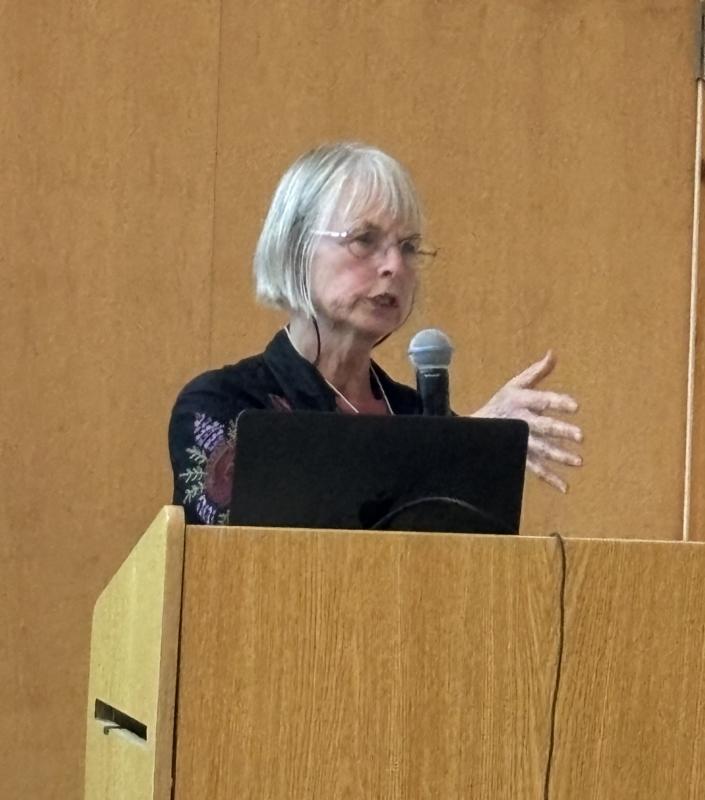 Volunteer Patient Liaison Patty Seybold. LISA KRISTOFF/Boothbay Register
Volunteer Patient Liaison Patty Seybold. LISA KRISTOFF/Boothbay Register
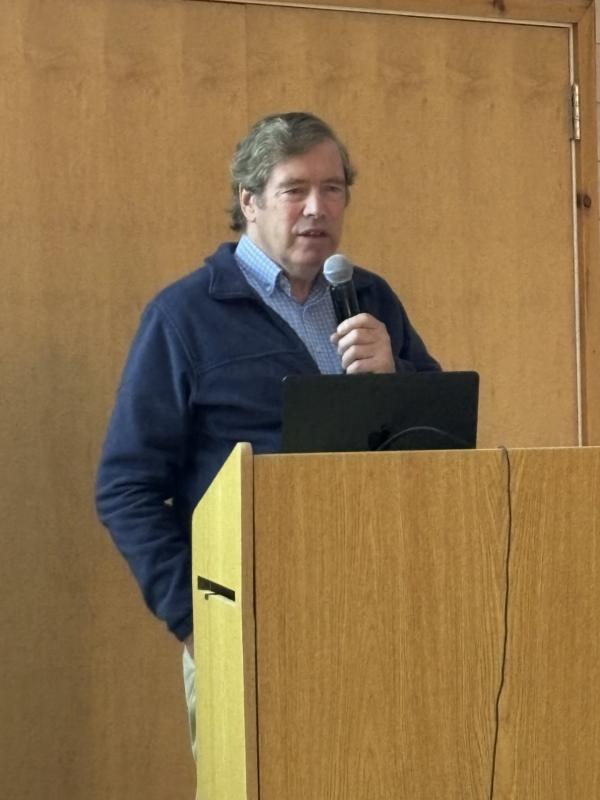 Allan S. Teel, principal physician. LISA KRISTOFF/Boothbay Register
Allan S. Teel, principal physician. LISA KRISTOFF/Boothbay Register
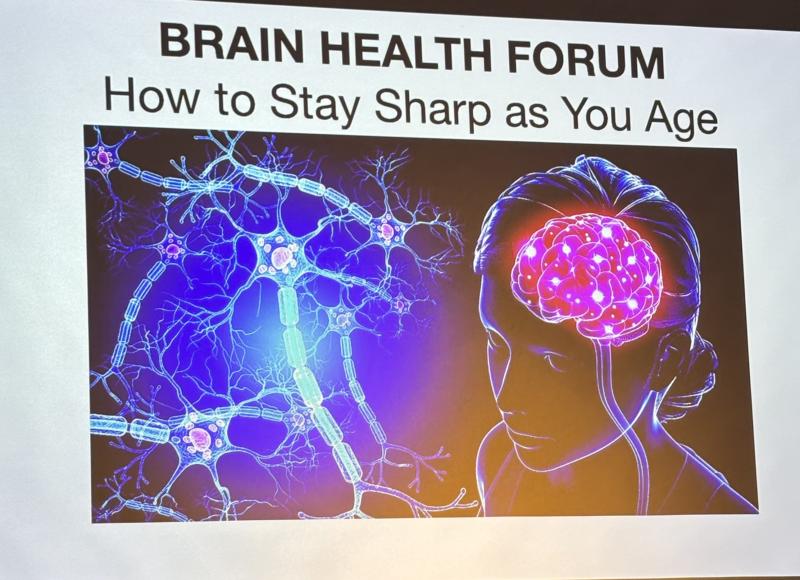 The Oct. 9 brain health forum begins.
The Oct. 9 brain health forum begins.
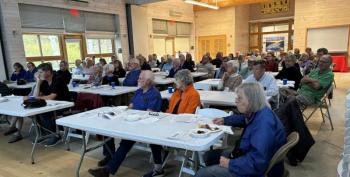 Boothbay Region Health Center's brain health presentation drew over 60 people to Bosarge Education Center at CMBG. LISA KRISTOFF/Boothbay Register
Boothbay Region Health Center's brain health presentation drew over 60 people to Bosarge Education Center at CMBG. LISA KRISTOFF/Boothbay Register
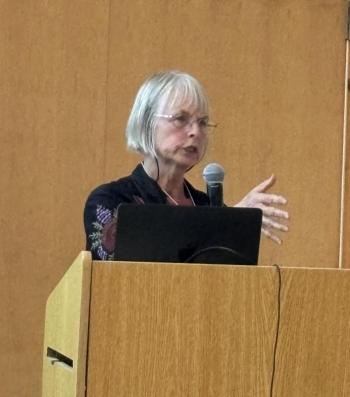 Volunteer Patient Liaison Patty Seybold. LISA KRISTOFF/Boothbay Register
Volunteer Patient Liaison Patty Seybold. LISA KRISTOFF/Boothbay Register
 Allan S. Teel, principal physician. LISA KRISTOFF/Boothbay Register
Allan S. Teel, principal physician. LISA KRISTOFF/Boothbay Register
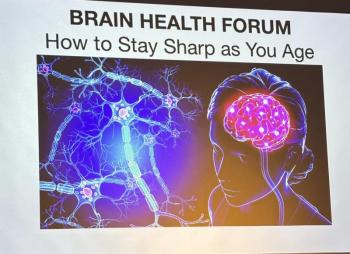 The Oct. 9 brain health forum begins.
The Oct. 9 brain health forum begins.
Have you been driving your car and then realize you don’t know where you’re going? Find it hard to follow directions? Have you begun having difficulty performing organizational tasks? Do you regularly have trouble remembering people’s names? Ever put something away, but then can’t remember where?
Issues involving memory have long been accepted as a natural part of getting older, but is it? Were one or both of your parents diagnosed with Alzheimer’s or dementia? Does it mean you will, too?
At Coastal Maine Botanical Gardens' Bosarge Family Education Center Oct. 9, Boothbay Region Health Center (BRHC) held a presentation about its Brain Health Research Program and The Boothbay Protocol. Over 60 people attended.
The Brain Health Research Program began in January 2020. Patty Seybold is the program’s volunteer patient liaison/coordinator who works closely with one of the Health Center's primary care doctors, Allan Teel. Dr. Teel specializes in geriatric medicine with cognitive decline the focus of his practice for over 30 years.
Seybold noted how unique this research program was because they were all doing it together.
“We work together as a team with Dr. Teel as ‘citizen scientists.’ When he tells us what the topic is we need to work on, we all hit the Internet and see what we can find out. Then we share it with everyone at the meetings,” said Seybold. “We may all be in our 70s, 80s and 90s, and we may be showing signs of cognitive issues, but we are bound and determined to keep our marbles and to participate as much as we can to really understand what is going on.”
Seybold shared what led her to begin this journey: She had cared for her both of her parents as they experienced Alzheimer’s (father) and mild short-term dementia (mother). Seybold was concerned she might inherit one of these memory and identity robbing diseases.
This concern led her to read the book, “The End of Alzheimer’s Program,” by Dr. Dale Bredesen. Then, Seybold was compelled to share the book with Teel. Bredesen is an expert in the field of neurodegenerative disease. His research identified 36 factors, including sleep, hormone levels, and poor diet that impact brain health. Participants in Bredesen’s research studies had specific blood tests performed to identify the pathogens affecting their brain function.
Among these were Lyme disease, Lupus, herpes, various types of inflammation and infection; heavy metals, and mold. This information from tests determined the focus of each patient’s treatment, including what action would be taken to stimulate their brain into regrowing brain cells, called neurons.
The Brain Health Research Program’s Boothbay Protocol is based on The Bredesen Protocol with some additions. Shared Seybold, “50% of us in the group did inherit some genes. Most of us have improved or at least have remained steady. Sleep is a key pillar; we get seven to eight hours of unmedicated sleep. Exercise is important and anytime you combine exercise and brain stimulation – learn dance steps. Stress relief is also important. Take a walk, join a group, listen to music, watch a movie.”
In addition, The Boothbay Protocol encourages volunteerism – helping others gets us out interacting with people, perhaps making new friends; and helping others feels good.
There are 80 people (including some care partners) now participating in this program between the ages of 46-91. Medicare/health insurances will cover most of the costs associated with the program.
To join the group, people must visit their primary care physician for a referral to Teel.
Like The Bredesen Protocol, re-balancing the factors discovered in each person’s blood tests includes the addition of vitamin and mineral supplements, eliminating gluten, improving oral hygiene, cutting out alcohol consumption, and eating a diet rich in healthy fats – salmon, olive oil, avocados, etc.; eliminating sugar, white flour products, processed foods, and cow-based dairy products, among others; the diet has elements of the KETO and Mediterranean diets. And participants drink at least eight glasses of water daily.atient, and the followup volumetric MRIs every two years. More specialized lab testing and diagnostics are also used, such as the Neuro Zoomer Plus Test that identifies 60 proteins and antibodies that could be affecting the brain. After evaluating the results of this and all tests, Teel creates a specialized Boothbay Protocol plant tailored for the needs of each patient.
“Four patients who have been in the program for over two years have had Volumetric MRIs that show they have increased the volume of their grey matter (brain cells) in many areas of their brains,” said Teel. “Many patients are improving on the scores of the cognitive tests we administer quarterly. And, most importantly, many are reporting greater mental clarity and peace of mind. They are no longer as worried as they were about losing cognitive function.
“There is hope and something you can do now,” said Teel. “Nearly all that we talk about as being good for your brain, is good for you in general, too.”
For more information about the Brain Health Research Program and being part of it, contact Seybold at pseybold@customers.com
For more information about The Boothbay Protocol, visit https://boothbayhealthcare.org





